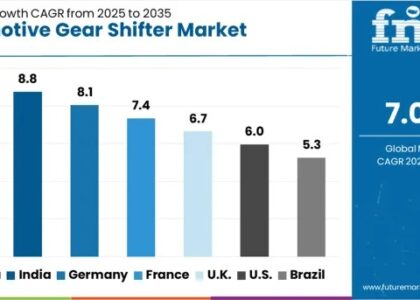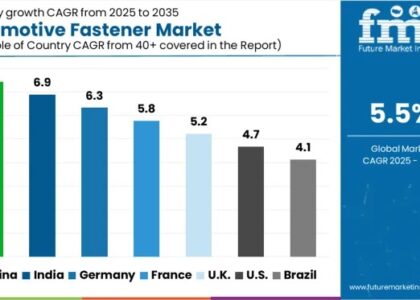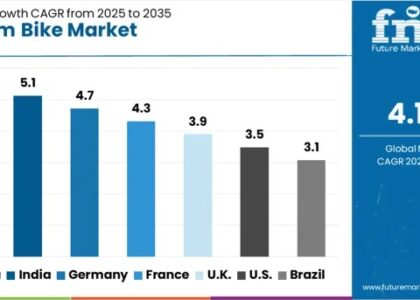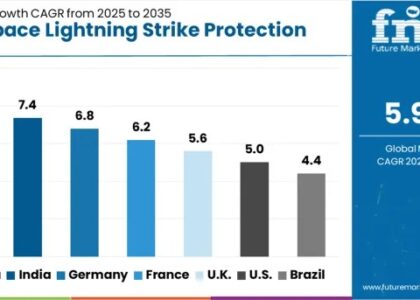According to recent market research, the global portable air conditioner market is expected to experience steady growth, with projected revenues reaching approximately USD 1,589.84 million by 2033. This marks a notable increase from the current market value of USD 1,171.6 million in 2023. Let’s delve into the key drivers behind this growth and what the future holds for the portable air conditioner market.As the world heats up, so does the demand for efficient cooling solutions. Among the various cooling technologies, portable air conditioners (PACs) are emerging as a popular choice for many households and businesses.
Current Market Landscape
In 2023, the portable air conditioner market stands at a robust USD 1,171.6 million. The market’s steady growth is underpinned by a compound annual growth rate (CAGR) of 3.1%. This growth can be attributed to several factors, including increasing temperatures globally, growing urbanization, and the rising need for flexible cooling solutions.
Key Drivers of Market Growth
Climate Change and Rising Temperatures: With global temperatures on the rise, the demand for cooling solutions is more pronounced than ever. Portable air conditioners offer a flexible and cost-effective alternative to central air conditioning, making them increasingly attractive to consumers in both residential and commercial settings.
Urbanization and Space Constraints: As more people move to urban areas, living spaces are becoming smaller. Portable air conditioners are ideal for compact living environments where installing a traditional air conditioning system might be impractical or costly.
Increased Awareness and Technological Advancements: Advances in technology have made portable air conditioners more efficient, quieter, and user-friendly. Modern units often come with features like remote controls, programmable timers, and energy-saving modes, enhancing their appeal.
Flexibility and Portability: Unlike fixed air conditioning systems, portable air conditioners can be moved from room to room, providing targeted cooling where it’s needed most. This flexibility is particularly valuable for people who live in rental properties or need additional cooling for specific areas.
Market Challenges in the Portable Air Conditioner Industry
- High Noise Levels
One of the significant drawbacks of portable air conditioners is the noise they produce. Compared to central or split air conditioning systems, portable units tend to be noisier. This can be a considerable concern for consumers, especially those in residential settings or office environments where noise levels are crucial for comfort and productivity.
- Limited Cooling Capacity
Portable air conditioners typically have a lower cooling capacity than their fixed counterparts. This limitation can make them less effective in larger spaces or in regions with extreme heat. Consumers might find that a single portable unit is insufficient for their cooling needs, leading them to purchase multiple units or seek alternative cooling solutions.
- Energy Consumption and Costs
Despite advances in energy efficiency, portable air conditioners can still consume a significant amount of energy. This can lead to higher electricity bills, which may deter cost-conscious consumers. Additionally, the energy efficiency of portable units can vary widely, with some models being less efficient than others.
- Installation and Maintenance
While portable air conditioners are often marketed as easy to install, some models can still be cumbersome and require proper ventilation for optimal performance. The installation process can involve setting up exhaust hoses and ensuring adequate airflow. Maintenance, including regular cleaning of filters and drains, is essential but can be overlooked by users, affecting performance and longevity.
- Market Saturation and Competition
The portable air conditioner market is becoming increasingly competitive, with numerous brands and models available. This saturation can make it challenging for manufacturers to differentiate their products and capture market share. Additionally, the influx of low-cost, lower-quality models can impact brand reputation and consumer trust.
- Environmental and Regulatory Concerns
The environmental impact of air conditioners, including portable units, is a growing concern. Regulations regarding refrigerants and energy efficiency standards are becoming stricter globally. Manufacturers must adapt to these regulations and invest in environmentally friendly technologies, which can increase production costs and complexity.
- Consumer Preferences and Perceptions
Consumer preferences are evolving, with many individuals seeking more sustainable and energy-efficient solutions. The perception of portable air conditioners as less effective compared to other cooling options can be a barrier to adoption. Educating consumers about the benefits and advancements in portable air conditioner technology is essential for market growth.
Competitive Landscape in the Portable Air Conditioner Market
The demand for portable air conditioners is notably high in densely populated regions experiencing rising temperatures. According to Future Market Insights, several global companies with a broad international presence dominate the market. Technological advancements are poised to influence the future of this industry, as these leading players continually introduce innovative features designed to enhance energy efficiency and improve overall user convenience.
Global Portable Air Conditioner Industry by Category
By Capacity:
- 5,000 to 10,000 BTUs
- 11,000 to 15,000 BTUs
- 16,000 to 20,000 BTUs
- 20,000 & Above BTUs
By End Use:
- Residential
- Commercial
By Sales Channel:
- Wholesalers/ Distributors
- Hypermarket/Supermarkets
- Specialty Stores
- Multi-brand Stores
- Online Retailers
- Other Sales Channel
By Region:
- North America
- Latin America
- Europe
- Asia Pacific
- The Middle East and Africa
About Future Market Insights (FMI)
Future Market Insights, Inc. (ESOMAR certified, recipient of the Stevie Award, and a member of the Greater New York Chamber of Commerce) offers profound insights into the driving factors that are boosting demand in the market. FMI stands as the leading global provider of market intelligence, advisory services, consulting, and events for the Packaging, Food and Beverage, Consumer Technology, Healthcare, Industrial, and Chemicals markets. With a vast team of over 400 analysts worldwide, FMI provides global, regional, and local expertise on diverse domains and industry trends across more than 110 countries.
Contact FMI:
Future Market Insights Inc.
Christiana Corporate, 200 Continental Drive,
Suite 401, Newark, Delaware – 19713, USA
T: +1-845-579-5705
For Sales Enquiries: sales@futuremarketinsights.com
Website: https://www.futuremarketinsights.com
LinkedIn| Twitter| Blogs | YouTube






